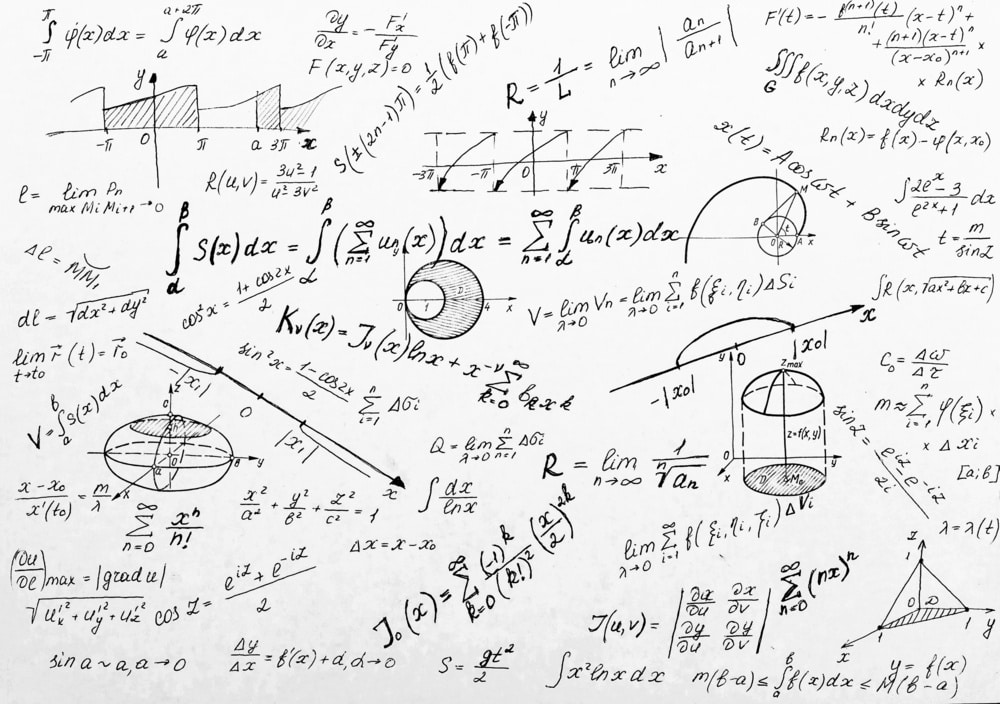AP Calculus AB is a college-level course that teaches students the fundamentals of calculus, including functions, limits, derivatives, integrals, and applications. The course typically spans an entire academic year and is divided into two semesters. AP Calculus AB is designed to cover as much material as a semester-long college calculus course, and successful completion of the course may qualify students for college credit.
One of the key benefits of taking AP Calculus AB is that it can help students develop critical thinking and problem-solving skills. The course challenges students to think creatively and apply mathematical concepts to real-world situations. Additionally, students who take AP Calculus AB may have an advantage when applying to college, as it demonstrates a strong academic background and a willingness to take on challenging coursework.
While AP Calculus AB is a rigorous course, there are resources available to help students succeed. Many schools offer after-school tutoring or study groups, and there are also online resources that provide additional practice problems and instructional videos. With dedication and hard work, students can excel in AP Calculus AB and set themselves up for success in college and beyond.
Why Is AP Calculus AB Considered a Challenging Course?
AP Calculus AB is known for being a challenging course because of its pace, rigor, and complexity. The course covers a vast amount of material, which can be difficult for some students to grasp. Additionally, it requires a significant amount of independent study and problem-solving, which can be daunting for students who are used to more structured courses.
Another reason why AP Calculus AB is considered a challenging course is that it requires a strong foundation in algebra and trigonometry. Students who struggle with these prerequisite subjects may find it difficult to keep up with the pace of the course. Furthermore, the course involves a lot of abstract concepts and theories, which can be hard to visualize and apply in real-world situations.
Despite its challenges, AP Calculus AB is a highly rewarding course for students who are interested in pursuing careers in STEM fields. It provides a strong foundation in calculus, which is essential for fields such as engineering, physics, and computer science. Additionally, students who excel in the course may be eligible for college credit or advanced placement, which can save them time and money in the long run.
Understanding the Curriculum of AP Calculus AB
The curriculum of AP Calculus AB is organized around four big ideas: limits, derivatives, integrals, and mathematical modeling. These big ideas are broken down into smaller concepts and skills that students must master throughout the course. Topics covered in AP Calculus AB include:
- Functions, including trigonometric, exponential, and logarithmic functions
- Differentiation, including the chain rule, product rule, and quotient rule
- Applications of differentiation, including related rates, optimization, and curve sketching
- Integration, including antiderivatives, the fundamental theorem of calculus, and applications of integration
- Differential equations, including separable differential equations and modeling with differential equations
Additionally, students in AP Calculus AB will also learn about sequences and series, including tests for convergence and divergence. They will also explore the applications of calculus in real-world scenarios, such as physics, engineering, and economics. Throughout the course, students will develop their problem-solving skills and learn to think critically about mathematical concepts.
Tips for Success in AP Calculus AB
Success in AP Calculus AB requires a combination of hard work, dedication, and good study habits. Here are a few tips to help you succeed in the course:
- Stay organized and keep track of assignments and deadlines
- Make use of practice problems and past exams to prepare for assessments and the AP exam
- Don’t be afraid to ask questions or seek help from your teacher or tutor
- Practice regularly and review previous material to ensure you have a solid foundation for new concepts
Another important tip for success in AP Calculus AB is to actively participate in class. This means taking notes, asking questions, and engaging in class discussions. By actively participating, you will not only better understand the material, but you will also show your teacher that you are invested in your education. Additionally, forming study groups with classmates can be a helpful way to review material and gain new perspectives on difficult concepts.
Common Misconceptions About AP Calculus AB
Several common misconceptions about AP Calculus AB can cause students to feel overwhelmed or discouraged:
- Calculus is only for math geniuses or those pursuing a STEM career
- Calculus is all about memorizing formulas and rules
- Calculus is always taught using complex mathematical notation that is difficult to understand
However, these misconceptions are not accurate. While calculus requires a certain level of mathematical proficiency, it is a valuable subject for anyone who wants to understand the world around them, whether they plan to pursue a career in STEM or not. Calculus is also about problem-solving and critical thinking, not memorization, and can be taught using visualization and real-life examples to make concepts more accessible.
Another common misconception about AP Calculus AB is that it is only useful for those pursuing a career in math or science. However, calculus has applications in a wide range of fields, including economics, engineering, and even medicine. Understanding calculus can help individuals make better decisions and solve complex problems in their chosen fields.
Furthermore, some students may believe that they are not capable of succeeding in AP Calculus AB because they struggled with pre-calculus or algebra. While a strong foundation in math is important, it is possible to succeed in calculus with hard work and dedication. Many students who initially struggle with calculus find that they improve with practice and a deeper understanding of the concepts.
How to Prepare for the AP Calculus AB Exam
The AP Calculus AB exam is typically administered in May and consists of two sections: a multiple-choice section and a free-response section. To prepare for the exam, you should:
- Start preparing early and give yourself plenty of time to study
- Take practice exams to get a feel for the format and types of questions you’ll encounter
- Review previous material regularly to ensure you have a solid foundation for new concepts
- Work on time management skills to ensure you can answer all questions within the allotted time
It’s also important to seek help when needed. Don’t hesitate to ask your teacher or tutor for clarification on any concepts you’re struggling with. Additionally, consider forming a study group with classmates to review material and practice problems together. Collaborating with others can help you gain new perspectives and insights, and can also make studying more enjoyable.
Real-Life Applications of Calculus and Why It Matters
Calculus has many real-life applications, from physics and engineering to economics and biology. Calculus allows us to model and analyze complex systems and make predictions based on data. For example, calculus can help us understand the motion of objects, the behavior of markets, and the spread of diseases. Additionally, success in calculus can open doors to a variety of careers in STEM fields and beyond.
One of the most important applications of calculus is in the field of medicine. Calculus is used to model the spread of diseases and to develop effective treatment plans. For instance, calculus can help us understand how a virus spreads through a population and how to control its spread. Calculus is also used to model the behavior of cells and tissues, which is crucial in developing new drugs and treatments for diseases.
Another area where calculus is widely used is finance. Calculus is used to model the behavior of financial markets and to develop investment strategies. For example, calculus can help us understand how interest rates affect the value of investments and how to optimize investment portfolios. Calculus is also used in risk management, where it is used to model the probability of different outcomes and to develop strategies to mitigate risks.
The Importance of Seeking Help in AP Calculus AB
If you’re struggling with AP Calculus AB, it’s important to seek help as soon as possible. This course builds on previous material, so if you fall behind, it can be difficult to catch up. Don’t be afraid to ask questions in class, attend after-school tutoring sessions, or seek help from AdmissionSight. There are also many online resources available that can help you understand difficult concepts.
Additionally, seeking help can also improve your overall understanding of the subject. By working with a tutor or attending extra sessions, you may gain a deeper understanding of the material and be better prepared for future coursework. It can also boost your confidence in the subject, which can lead to better performance on exams and assignments.
Furthermore, seeking help shows that you are taking your education seriously and are willing to put in the extra effort to succeed. This can be especially important if you plan on pursuing a career in a math or science-related field. Employers and colleges often look for individuals who are willing to seek help and take initiative in their education.
Finally, it’s important to remember that success in AP Calculus AB is possible! Many students have excelled in this course and gone on to pursue successful careers in STEM fields. By staying organized, practicing regularly, seeking help when needed, and maintaining a positive attitude, you can succeed in AP Calculus AB and beyond.
In conclusion, AP Calculus AB is a challenging, but rewarding course that requires hard work, dedication, and good study habits. By following the tips and strategies outlined in this article, you can master the course material, prepare for the AP exam, and unlock the many opportunities that calculus offers.










































